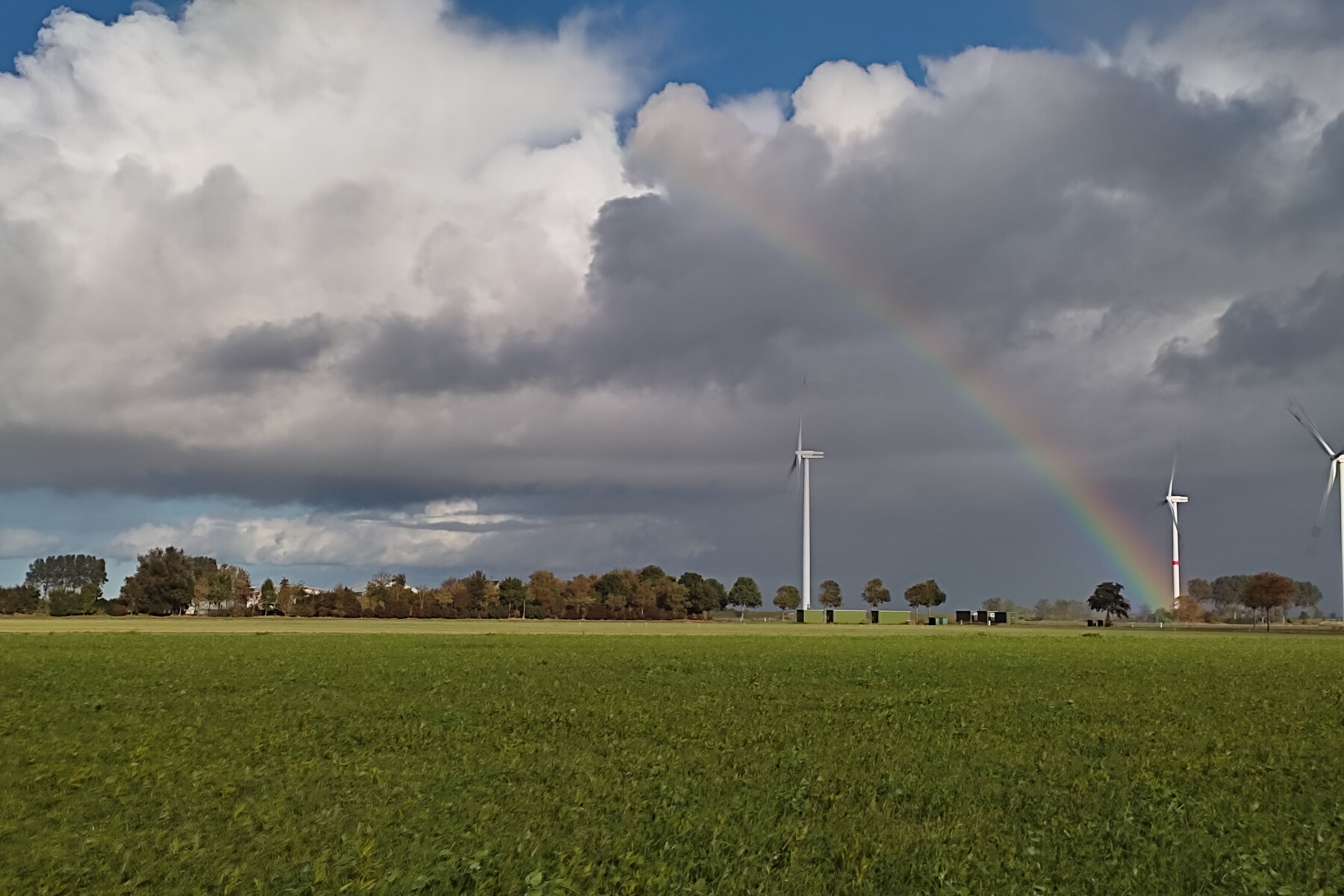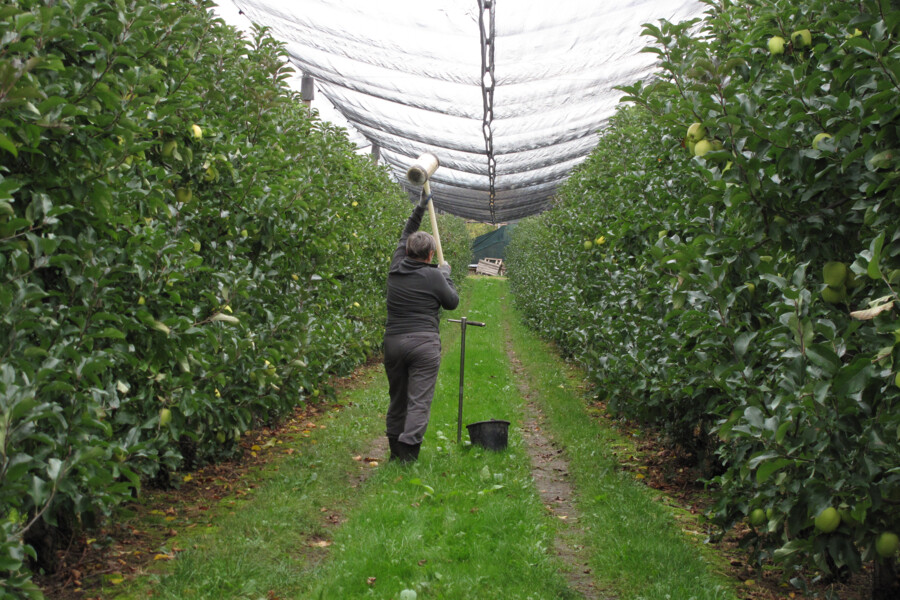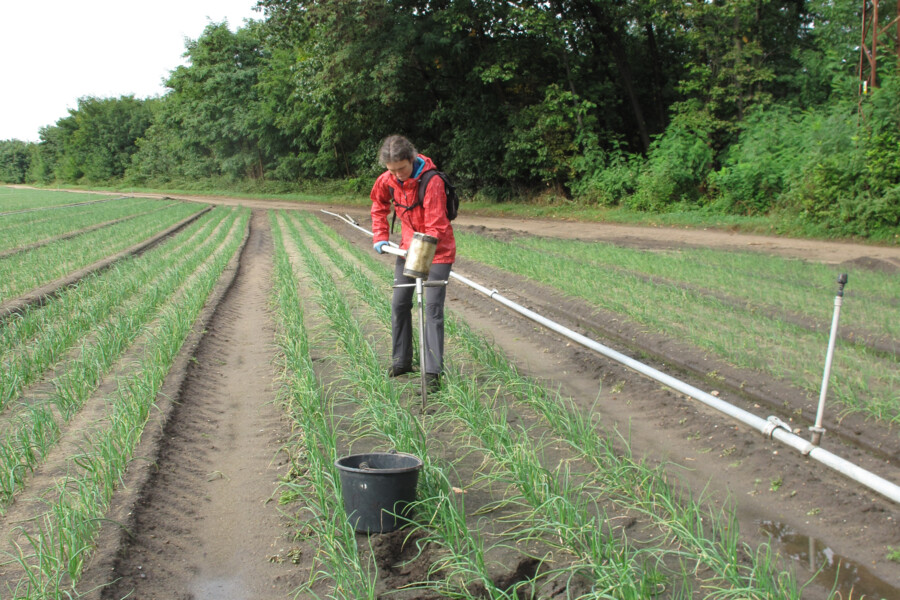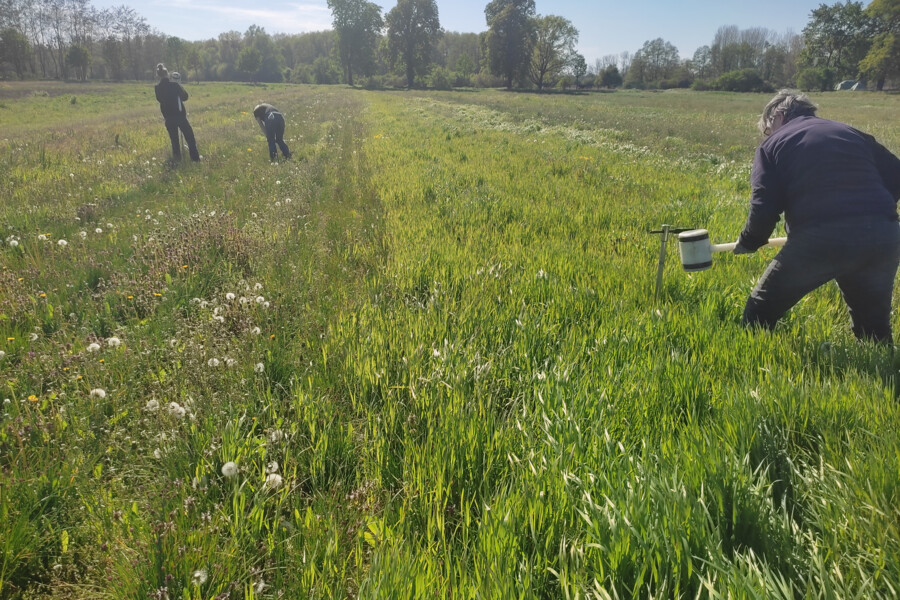Healthy soils – healthy plants – healthy food
Keeping research in and on the ground
From mid-2020 to mid-2025, Dr Carmen Feller and Dr Sandra Münzel from the " Open Field Horticultural Systems" research group will be investigating the current state of soil fertility in vegetable and fruit growing fields. Measures to stabilise the monitoring of the soil condition for healthy product quality are being tested and scientifically supported on pilot farms. The aim of the project is to draw up a catalogue of measures to increase soil fertility in the cultivation of fruit and vegetables. As a result, binding guidelines for cultivation are to be formulated.
Numerous parameters of soil health and fertility as well as field management are being analysed at various vegetable production sites. Humus balancing is also carried out. In addition to an inventory of the current status, deficits in the soil and, based on this, the use of various measures to stabilise or even improve soil health are to be determined.
The project involves 18 pilot vegetable and fruit farms with around 80 fields covering different regions, soil types and farming methods in Germany, Poland and the Czech Republic. This is the first time that the soils of vegetable-growing areas have been comprehensively analysed. All of the farms contacted, which are also suppliers to the food retailer Kaufland, were interested and allowed the analyses to be carried out on their land and actively supported the project work.
The analyses of the current soil condition yielded interesting results. In vegetable cultivation, the soils analysed were well supplied with the macronutrients potassium and phosphorus. Fertilisation should therefore be avoided in over-supplied fields. However, there are often deficiencies in micronutrient levels such as zinc and boron. It is therefore advisable to check the micronutrient content in order to prevent or counteract a deficiency.
The lowest pH value measured was 3.9. Although this value represents an extreme, around 30% of the plots had a pH value that was too low for their soil type. In 70 to 85% of the plots, the reserve levels of calcium and magnesium were very low.
In more than half of the plots, humus contents were found to be too low typical of the location, often less than 2%. To improve this, simple measures such as the addition of organic fertiliser or the use of intercrops can be taken. The evaluation of the farms' field maps data showed that all farms use catch crops, but 25% of the farms do not yet use organic fertilisers. Organic fertilisation contributes to CO2-storage and is therefore environmentally relevant.
The measures proposed by the IGZ scientists and implemented on the pilot farms focused on changing management practices and the use of micronutrient fertilisers, lime, organic soil additives or beneficial soil microorganisms.
There is already great interest in the results and the proposed measures among the practitioners. The results to date have already been published in various trade journals such as ‘Gemüse’ (vegetable), the apple magazine ‘Poma’ and ‘Gartenbauprofi’ and have been presented at numerous conferences such as Fruit Logistica and the 2023 Horticultural Days in Mecklenburg-Vorpommern.
Extensive soil sampling is planned for 2024 on all fields involved in the project in order to evaluate the effectiveness of the recommended measures. It will then be possible to make initial statements about the first changes in soil parameters as a result of a change in cultivation methods. The results will be published at the end of the project. Kaufland will derive binding guidelines for contract farms from this.



